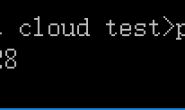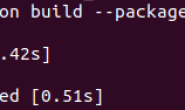文中用到的convert.txt就是字典,但是作者的博客中没有提供下载.我通过网络搜索,从其他途径下载到了整个压缩包,包括字典和转换程序.该程序 是基于GBK的, 要把汉字分成高低位来处理,一般人理解不了,我做了点改进就是把字典转化为utf-8的,因为在django中使用的
# -*- coding: utf-8 -*- # ------------------------------------------------------------ # Script Name: convert.py # Creation Date: 2010-09-21 02:12 # Last Modified: 2011-11-12 18:38:13 # Copyright (c)2011, DDTCMS Project # Purpose: This file used for DDTCMS Project # ------------------------------------------------------------ ##################################### # Written by caocao # # Modified by huyoo353@126.com # # caocao@eastday.com # # http://nethermit.yeah.net # ##################################### # python. import sys,os import re import string class CConvert: def __init__(self): self.has_shengdiao = False self.just_shengmu = False self.spliter = '-' "Load data table" try: fp=open(os.path.join(settings.PROJECT_DIR, 'utils', 'convert-utf-8.txt')) except IOError: print "Can't load data from convert-utf-8.txt\nPlease make sure this file exists." sys.exit(1) else: self.data=fp.read().decode("utf-8")# decoded data to unicode fp.close() def convert1(self, strIn): "Convert Unicode strIn to PinYin" length, strOutKey, strOutValue, i=len(strIn), "", "", 0 while i<length: code1 =ord(strIn[i:i+1]) if code1>=0x4e02 and code1<=0xe863: strTemp = self.getIndex(strIn[i:i+1]) if not self.has_shengdiao: strTemp = strTemp[:-1] strLength = len(strTemp) if strLength<1:strLength=1 strOutKey += string.center(strIn[i:i+1], strLength)+" " strOutValue += self.spliter + string.center(strTemp, strLength) + self.spliter else:#ascii code; strOutKey+=strIn[i:i+1]+" " strOutValue+=strIn[i:i+1] + ' ' i+=1 ############################# #txlist = utf8String.split() #out=convert.convert(utf8String) #l=[] #for t in map(convert.convert, txlist): # l.append(t[0]) #v = '-'.join(l).replace(' ','').replace(u'--','-').strip('-') ############################# return [strOutValue, strOutKey] def getIndex(self, strIn): "Convert single Unicode to PinYin from index" if strIn==' ':return self.spliter if set(strIn).issubset("'\"`~!@#$%^&*()=+[]{}\\|;:,.<>/?"):return self.spliter # or return "" if set(strIn).issubset("-—!##%%&&()*,、。:;?? @@\{{|}}~~‘’“”《》【】++==×¥·… ".decode("utf-8")):return "" pos=re.search("^"+strIn+"([0-9a-zA-Z]+)", self.data, re.M) if pos==None: return strIn else: if not self.just_shengmu: return pos.group(1) else: return pos.group(1)[:1] def convert(self, strIn): "Convert Unicode strIn to PinYin" if self.spliter != '-' and self.spliter !='_' and self.spliter != '' and self.spliter != ' ': self.spliter = '-' pinyin_list=[] for c in strIn : pinyin_list.append(self.getIndex(c)) pinyin='' for p in pinyin_list: if p==' ': pinyin+= self.spliter continue if len(p)<2:# only shengmu,just get one char,or number #if p.isdigit(): # pinyin += p + ' ' #else: # pinyin += p + ' ' pinyin += p + ' ' else: if not self.has_shengdiao: p = p[:-1] pinyin += self.spliter + p + self.spliter pinyin = pinyin.replace(' ','') \ .replace(self.spliter+self.spliter,self.spliter) \ .strip(self.spliter+' ').replace(self.spliter+self.spliter,self.spliter) return pinyin




